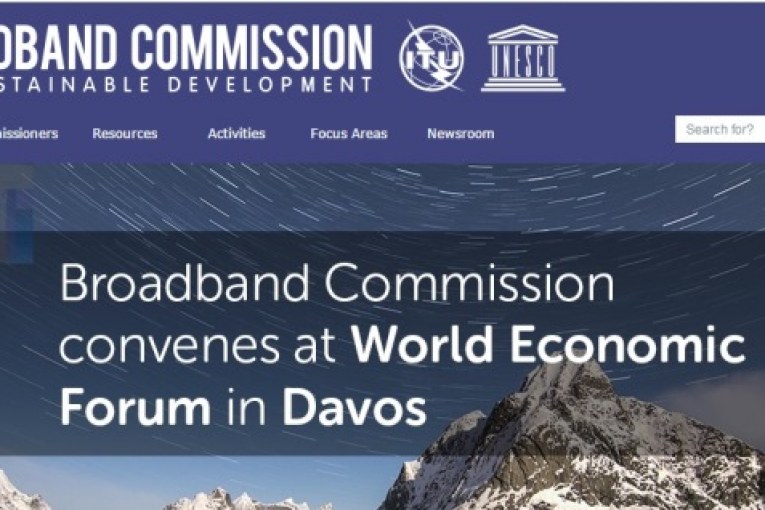
New investment models can unlock the power of broadband connectivity
Almasalla- Arab Travel Portal News – Davos- Global leaders must urgently accelerate progress toward universal and affordable access to information and communication technologies (ICTs), if the world is to meet the United Nations’ Sustainable Development Goals (SDGs) by 2030, according to the UN Broadband Commission for Sustainable Development, which met this week at Davos, Switzerland, during a Special Session co-organized with the World Economic Forum.
The high-level meeting attended by government ministers, UN leaders and C-suite industry executives called on governments around the world to prioritize broadband connectivity in countries and regions under their influence.
“We need fresh investment models to unlock the power of ICT connectivity that fuels growth in today’s digital economy,” said Houlin Zhao, ITU’s Secretary-General.
“Without more innovative public-private partnerships and leadership, we will miss our opportunity to fast-forward progress on the SDGs.
We will miss the chance to improve lives for everyone, no matter who they are or where they live.”
The leaders in attendance identified and addressed several key areas including: new financing models for broadband infrastructure.
new last-mile business models; new country partnership models; and new approaches to ending gender digital divide.
critical role of responsive leadership
They also discussed the critical role of responsive leadership to drive progress in each of these key areas – and how they could work together to lead the charge to connect the world’s next billion people.
“Broadband access is about leadership,” said Irina Bokova, UNESCO Director-General and Broadband Commission Co-Vice Chair.
“Investing in new technologies to bridge educational and digital divides is imperative for reaching the SDGs.”
New discussion paper on connecting the next billion
ITU contributed a discussion paper to the Davos Special Session that aimed to increase awareness of who the next billion to be connected are and where they reside.
ITU research reveals that, based on current population and connectivity trends, the next billion to come online by 2020 .
Are most likely to be: urban; from Asia-Pacific and the Americas; and live in areas that are already within reach of wireless and wireline infrastructure; and not among the poorest.
There are still some 3.9 billion people, more than half the world’s population, who have never been online and are therefore excluded from all the knowledge and opportunities.
that are so readily accessible to nearly half the world.
Moreover, the offline population is disproportionately female, rural and poor.
Among those still unconnected, some 58% are female and roughly 60% are rural.
This data must translate into future national connectivity action plans that ensure gender equality (in terms of access, skills and opportunities) and that the rural poor are fully included.
Connecting the next billion is not just an infrastructure issue, according to the paper.
The research uncovered the importance of driving demand, including increasing the affordability of online services, and, notably, increasing.
the availability and relevance of local-language applications and content.
On the supply-side, the key areas in which to focus investment for connecting the next billion include new “last-mile” technologies, network expansion or upgrade, and broadband rollout.
Moreover, for the remote and rural populations of the next billion, new financing models for connectivity are needed to cover .
so-called ‘uneconomical’ areas where return on investment proves more challenging.
“Without pathways to connectivity, we will not achieve sustainable economic growth,” said Rwanda President and Broadband Commission Co-Chair Paul Kagame, adding that Rwanda aims to achieve universal access to broadband by 2020.
power of broadband connectivity








